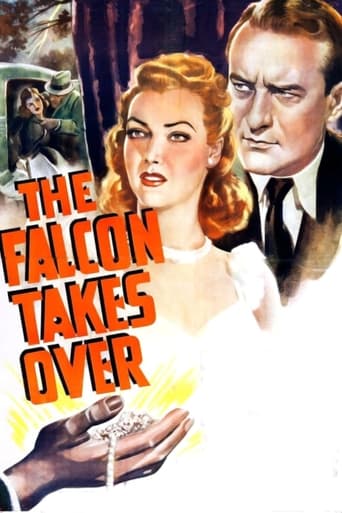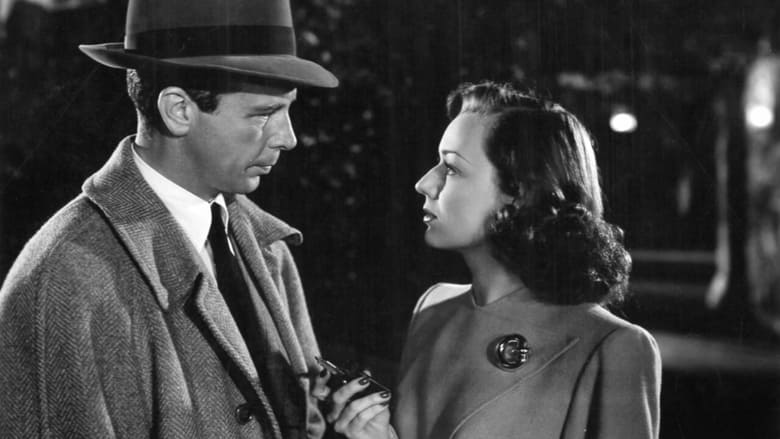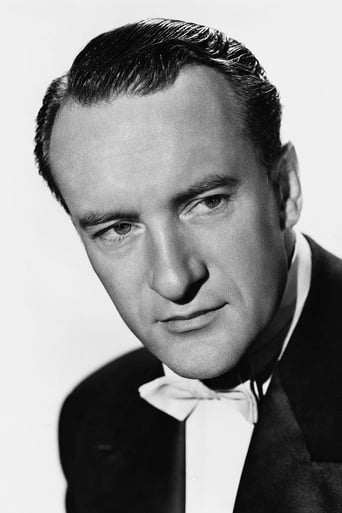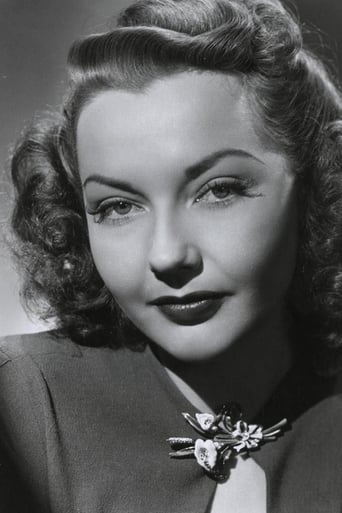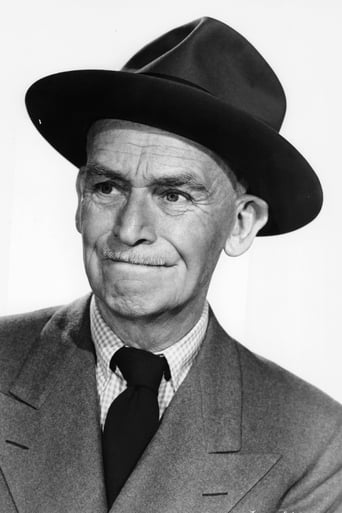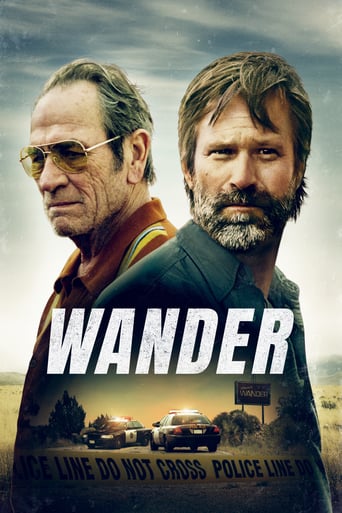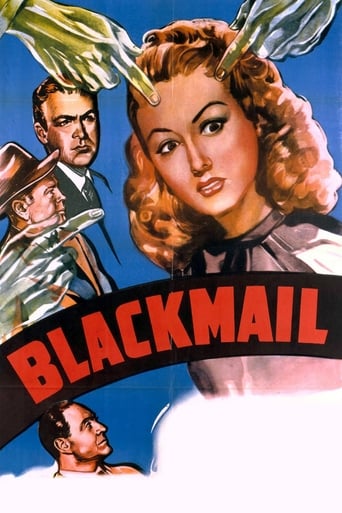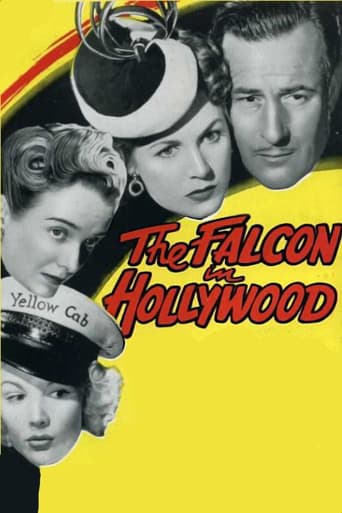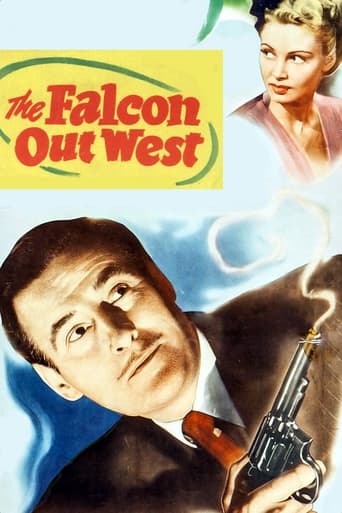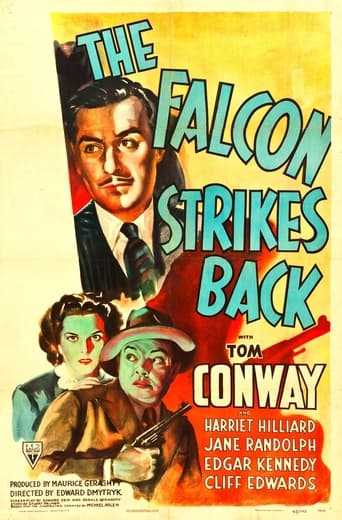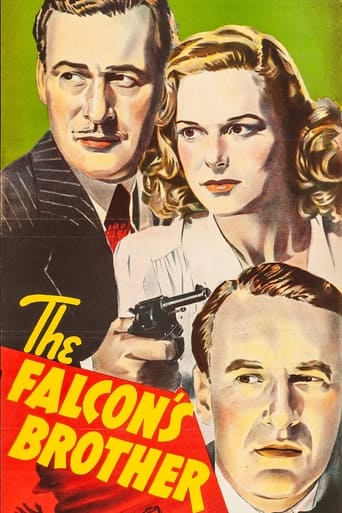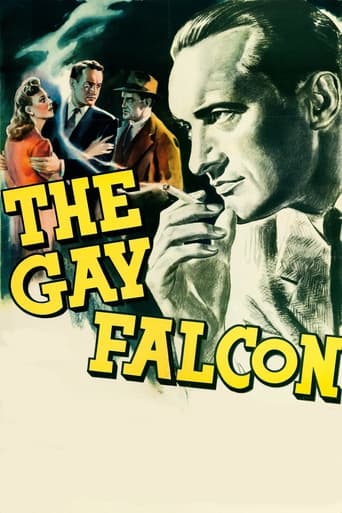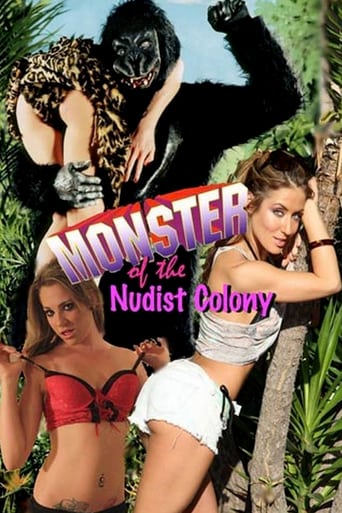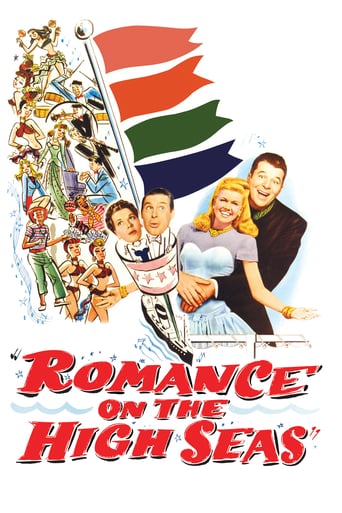The Falcon Takes Over (1942)
While an escaped convict, Moose Malloy, goes in search of his ex-girlfriend Velma, police inspector Michael O'Hara attempts to track him assuming him to be a prime suspect for a number of mishaps.
Watch Trailer
Cast


Similar titles
Reviews
Really Surprised!
One of my all time favorites.
what a terribly boring film. I'm sorry but this is absolutely not deserving of best picture and will be forgotten quickly. Entertaining and engaging cinema? No. Nothing performances with flat faces and mistaking silence for subtlety.
Very good movie overall, highly recommended. Most of the negative reviews don't have any merit and are all pollitically based. Give this movie a chance at least, and it might give you a different perspective.
Though the Raymond Chandler novel Farewell, My Lovely was more famously used to revive - transform singing hoofer Dick Powell's career when it was adapted by director Edward Dmytryk and screenwriter John Paxton into Murder, My Sweet (1944) a couple of years hence and became a vehicle for an aged Robert Mitchum in 1975, the first screen version of it was used to make this third film in the Falcon Series. Lynn Root and Frank Fenton wrote the screenplay featuring Michael Arlen's characters that Irving Reis directed.It's a B movie crime mystery comedy that stars George Sanders as Gay Lawrence aka The Falcon; James Gleason and Allen Jenkins reprise their roles as police Inspector O'Hara and Lawrence's sidekick chauffeur 'Goldy' Locke. Playing the female parts are Lynn Bari as reporter wannabe Ann Riordan and Helen Gilbert as femme fatale Diana Kenyon. Appearing uncredited are several recognizable character actors that fill the other key roles including Ward Bond as Moose Malloy, Edward Gargan as O'Hara's sidekick Detective Bates, Anne Revere as Jessie Florian, Hans Conreid as Lindsey Marriot, Turhan Bey as Jules Amthor, and Selmer Jackson as Laird Burnett.After serving five of his twenty year sentence, lovelorn lug Moose Malloy escapes from prison in search of his showgirl friend Velma, but finds that the club where she worked is now called Club 13, and under new ownership. After killing its manager, he forces Goldy (who'd been waiting for his boss the Falcon to emerge) to take him to Jessie Florian's house in Brooklyn. He returns to find the Falcon conversing with Inspector O'Hara and Detective Bates in the manager's office. Though he tells the police that he'd taken the Moose to the subway, he later admits the truth to the Falcon, who naturally wants to go there too. Pretending to be drunk, the Falcon avoids a similar fate at the hands of the murderer and then meets Florian, who inadvertently reveals an address and a meeting time to the amateur detective. After returning to his residence, the Falcon receives a call from Lindsey Marriot, who pretends to need some assistance in obtaining a stolen jade necklace. Fortunately for the Falcon, he didn't trust Marriot else he'd have been killed with his own gun. Marriot is then shot by an unseen party and the Falcon catches Ann Riordan at the scene. She'd been following the Falcon hoping to find a story that would net her a reporter job with a newspaper. The Falcon then finds a business card in Marriot's pocket; the address matches the one he'd written down at Florian's apartment and the name on the card is Jules Amthor, psychic consultant.After sharing the details of Marriot's murder with O'Hara, the Falcon sends Goldy to meet Amthor at the designated time while he and Ann go to meet Diana Kenyon, the owner of the jade necklace with whom the reporter had an appointment. Ladies' man that he is, the Falcon charms Miss Kenyon, or does she seduce him? Meanwhile, at the psychic's reading room, Goldy is a sitting duck when Moose arrives at the appointed time. Whereas Amthor was to kill Malloy, the lug turns the tables on he and his assistant, killing them both while leaving Goldy in the dark to be discovered by O'Hara and Bates, who'd been trailing the Falcon's sidekick. Finding him in yet another compromising position, the police officers force Goldy to agree to inform them of his boss's activities and, when the Falcon insists on returning to Florian's, he does. While the Falcon is finding a signed photograph of the alluring Velma in the next room, O'Hara enters the darkened room with Goldy where, just moments before, they'd found Florian dead by strangulation (e.g. Moose again). The Falcon escapes to find Miss Kenyon at the club, where he then meets Laird Burnett. In Burnett's office, Miss Kenyon tells the Falcon that she'd seen Velma working in an out of the way club, and promises to take him there. Then, after eluding a detective, they are driven by a chauffeur on a remote road.At this point, the mystery of all these seemingly disparate connections is revealed, as Sanders all but mumbles the answers; Moose's conflict is resolved as the case is solved perhaps too abruptly and too conveniently for most viewers.
The character of the Falcon, an amateur gentleman detective similar to Leslie Charteris' "the Saint", was created by Michael Arlen, a Bulgarian-born British writer of Armenian descent, and was then taken up by Hollywood in a series of crime dramas. Arlen's hero was named Gay Falcon, but in the films he was, for unknown reasons, renamed Gay Lawrence, "the Falcon" being a nickname. (Arlen's choice of a forename for his hero was a strange one. I am well aware that in the thirties and forties the word "gay" did not carry its modern meaning of "homosexual", but even then "Gay" was well-established as a feminine Christian name). In the first four films the Falcon was played by George Sanders, who had also played the Saint in a series of films based on Charteris' books. Feeling that he was becoming typecast, Sanders dropped out of the series after the fourth film in which a new Falcon was introduced, Gay Lawrence's brother Tom. This character was played by Sanders' real-life brother, Tom Conway. (His real name was Tom Sanders; "Conway" was a stage name).Arlen, in fact, only wrote one "Falcon" story, which formed the basis for the first film, "The Gay Falcon"; for all the others a new plot had to be found. "New", however, did not always mean "original", and for the third instalment in the series, "The Falcon Takes Over" (aka "The Falcon Steps Out"), the producers borrowed the plot of Raymond Chandler's novel "Farewell, My Lovely", also to be filmed as "Murder, My Sweet" two years later. (A third adaptation of the book, under its original title, was made in the seventies). They moved the action from Los Angeles to New York and substituted the Falcon for Chandler's hero Philip Marlowe.I won't go into the plot in any detail; as one might expect with Chandler it is extremely complex. It revolves around Moose Malloy, a thuggish former wrestler who has escaped from prison and is looking for his old girlfriend. Besides Moose and the Falcon, other characters include an attractive lady reporter, a wealthy heiress and the Falcon's assistant Jonathan 'Goldie' Locke, who plays Watson to his Holmes. Locke is a wisecracking New Yorker with a strong Brooklyn accent; the idea was presumably to provide a contrast with the Falcon himself, who is played as an upper-class English gentleman.The film was made as a B-movie, which meant that it had a very short running time of only just over an hour. This was really insufficient to deal with all the complexities of Chandler's plot and as a result the film comes across as very rushed, muddled and difficult to follow. That is not always a problem with forties crime dramas; nobody, for example, would claim that the plot of Howard Hawks' "The Big Sleep", also based on a Marlowe story, is easy to understand, yet it is still a great movie. Director Irving Reis, however, is unable to capture that powerful sense of atmosphere which is so important a quality of Hawks' film.I have often admired Sanders as an actor, but normally in better films than this one. He often seemed to be at his best in supporting roles rather than as the main star, for example in "Rebecca", "Samson and Delilah", "Foreign Correspondent", "Ivanhoe" and "All about Eve", for which he won a "Best Supporting Actor" Oscar. (Indeed, in a number of these films, notably "Samson" and "Foreign Correspondent", he actually gave a better performance than did the film's official main star). Here, however, he is the lead, and hardly makes the most of it, seeming far too relaxed and laid-back. This may be in line with the Falcon's character, but in real life even the most insouciant individuals tend to become more serious when grave matters like murder are at stake. Allen Jenkins as Goldie starts off as amusing but his appeal wears off after a while.Reis was clearly attempting the film noir style which was becoming very fashionable in 1942, but noir seems to have needed the greater budget and running-time of an A-movie to succeed. Many noirs from the period remain marvellously watchable today, but "The Falcon Takes Over" is not amongst them. 4/10
Except that GEORGE SANDERS seems bored by his role as The Falcon (it was his next to last assignment in Falcon films), and that he is no substitute for the tough detective Philip Marlowe, this early version of Chandler's "Farewell, My Lovely" is geared for a mixture of mystery, mirth and murder. LYNN BARI as an ambitious young newspaper reporter adds some zest to the co-starring female lead.Interesting to see character actress ANN REVERE as a tough old broad, HANS CONREID as a double-crossing playboy and TURHAN BEY as a Swami. But the standout supporting roles are filled by WARD BOND as Moose Malloy and ALLEN JENKINS as Goldy, the Falcon's right-hand man afraid of Moose.Bond looks like an impressive hot-tempered hulk and his scenes with Jenkins are both menacing and humorous. Jenkins plays his role for all the humor in the script--and there's plenty of that to go around. JAMES GLEASON as an exasperated detective is at his bombastic best.It's a fun ride with a running time of just an hour, so the Chandler story had to be compressed. In that it's an intricate tale of murder and deception, it never gets the full treatment here. Nevertheless, for fans of GEORGE SANDERS, it's a worthwhile flick with overtones of humor and noirish mystery in the Chandler manner.
An entertaining enough film, but a bit too "cute" and tries a bit too hard to be funny for hard-core film-noir fans like myself. For a far superior adaptation of the same Chandler story, I highly recommend "Farewell My Lovely" (1975).

